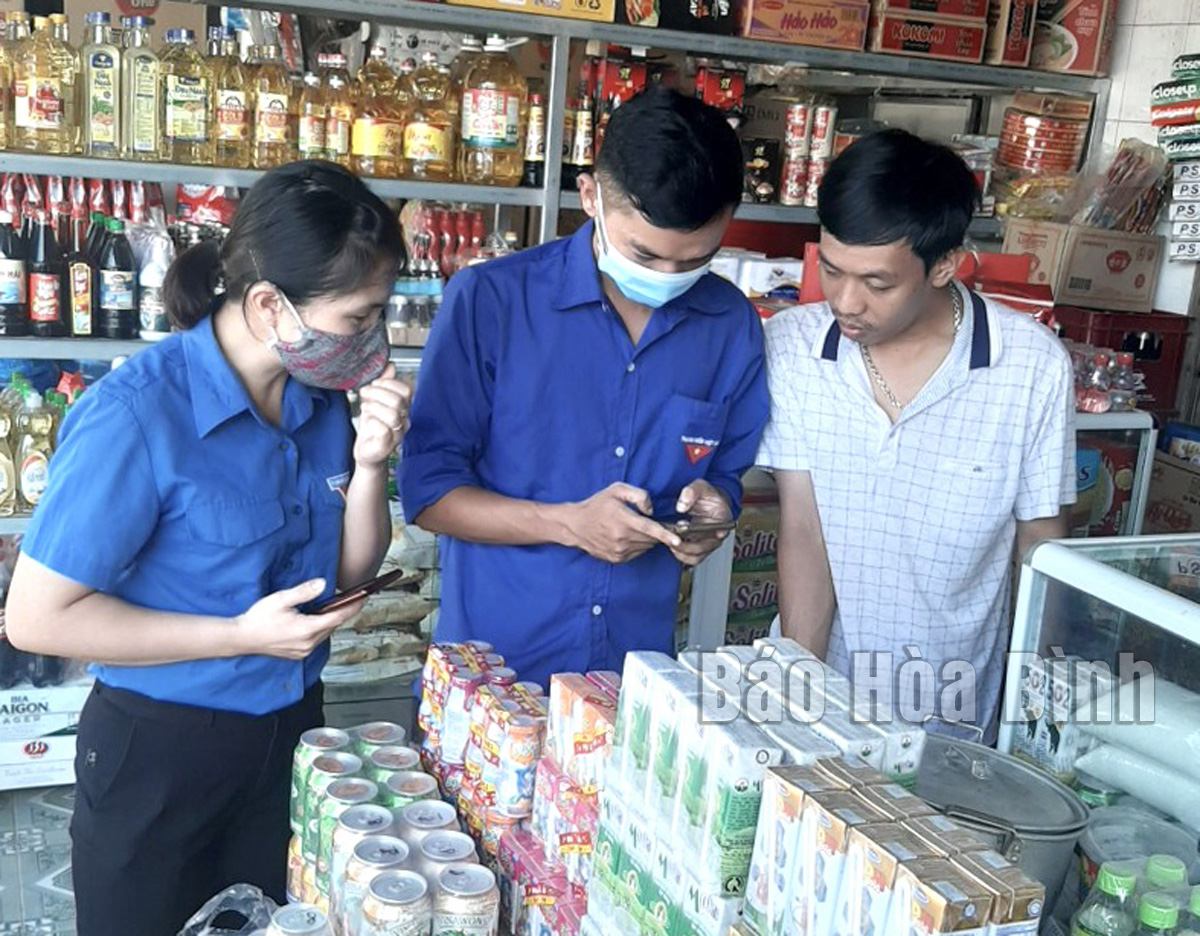
(HBO) - The "smart mass mobilisation" emulation movement has been widely implemented in various fields of social life by the Party Committee, authorities, the Fatherland Front and mass organisations in Hang Tram town of Yen Thuy district. Therefore, the awareness of officials, Party members and local people about this work has improved and been concretised through typical models and good examples, which has gained applause by the local Party Committee and authorities.

Implementing the smart mass mobilization model named "Youth in Hang Tram town volunteering for community life", youth unionists in the town guide locals in installing medical software for effective disease prevention and control.
Since the beginning of 2021, the town has maintained 16 models in all fields including four in economic development, seven in socio-culture affairs, two in defence-security, and three in political system buildings. Of the total, 10 effective models have been replicated such as "planting citrus trees", "clean houses, beautiful gardens, fresh environment", and "mobilising people to build roads". Particularly in 2022, there are some new models such as "building model streets", "setting up humanitarian wardrobes". To date, all models have proved effective, creating positive impacts on society and the community.
However, the Party Committee of Hang Tram town admitted that in the past time, several branches, management boards, and mass organisations still have not implemented promptly some tasks under plans of the Party Committee, and their role in providing consultations in model building at the grassroots level has not been clearly promoted.
To overcome these limitations, Tran Van Nam, Permanent Deputy Secretary of the Party Committee of the town, said that in the coming time, the Party Committee will continue strengthening political and ideological education to raise awareness for officials and party members about the important role of smart mass mobilisation in people's lives, assessing the efficiency of models to address difficulties and improve operation quality, and actively grasping the situation and needs of local people as a basis for building new models that are highly feasible and suitable to people's aspirations, stepping up dialogues, and well implementing ethical standards of officials and party members./.
More than just an information technology teacher, Bui Van Nien is an inspiring figure who has nurtured the scientific curiosity and creative spirit of students in Vietnam’s ethnic minority communities.
Da Bac is the most disadvantaged mountainous district in Hoa Binh province, with ethnic minorities accounting for about 90% of its population. Over the past years, the district has mobilised resources to implement ethnic policies to improve the quality of life of local people.
In recent years, Hoa Binh province has consistently prioritised the protection, care, and education of children, particularly those from ethnic minorities and disadvantaged backgrounds, by creating a safe, healthy, and nurturing environment for their all-round development.
The Steering Committee for Tobacco Harm Prevention and Control of Hoa Binh province, in coordination with the Tobacco Harm Prevention and Control Fund, held a ceremony on May 28 in response to the World No Tobacco Day (May 31) and the National No Tobacco Week (from May 25 to 31). The event was chaired by Nguyen Van Toan, Standing Vice Chairman of the provincial People’s Committee and head of the Steering Committee.
Since 2021, the Center for Industrial Promotion and Industrial Development Consulting (CIIDC) under the Department of Industry and Trade has been implementing a school lighting model as part of the plan for using energy efficiently and economically in Hoa Binh Province in the pẻiod of 2021 - 2025. This model not only aims to improve the learning conditions and enhance the education quality, but it also promotes the message of energy saving, energy security, environmental protection and contributes to the goals of socio-economic development.
In the 2024 - 2025 school year, the entire Hoa Binh provincial education sector includes 520 educational institutions and schools. Among them are 13 ethnic boarding schools with 153 classes and 4,487 students. Four of these schools have met national standards, reaching 30.7 percent.



